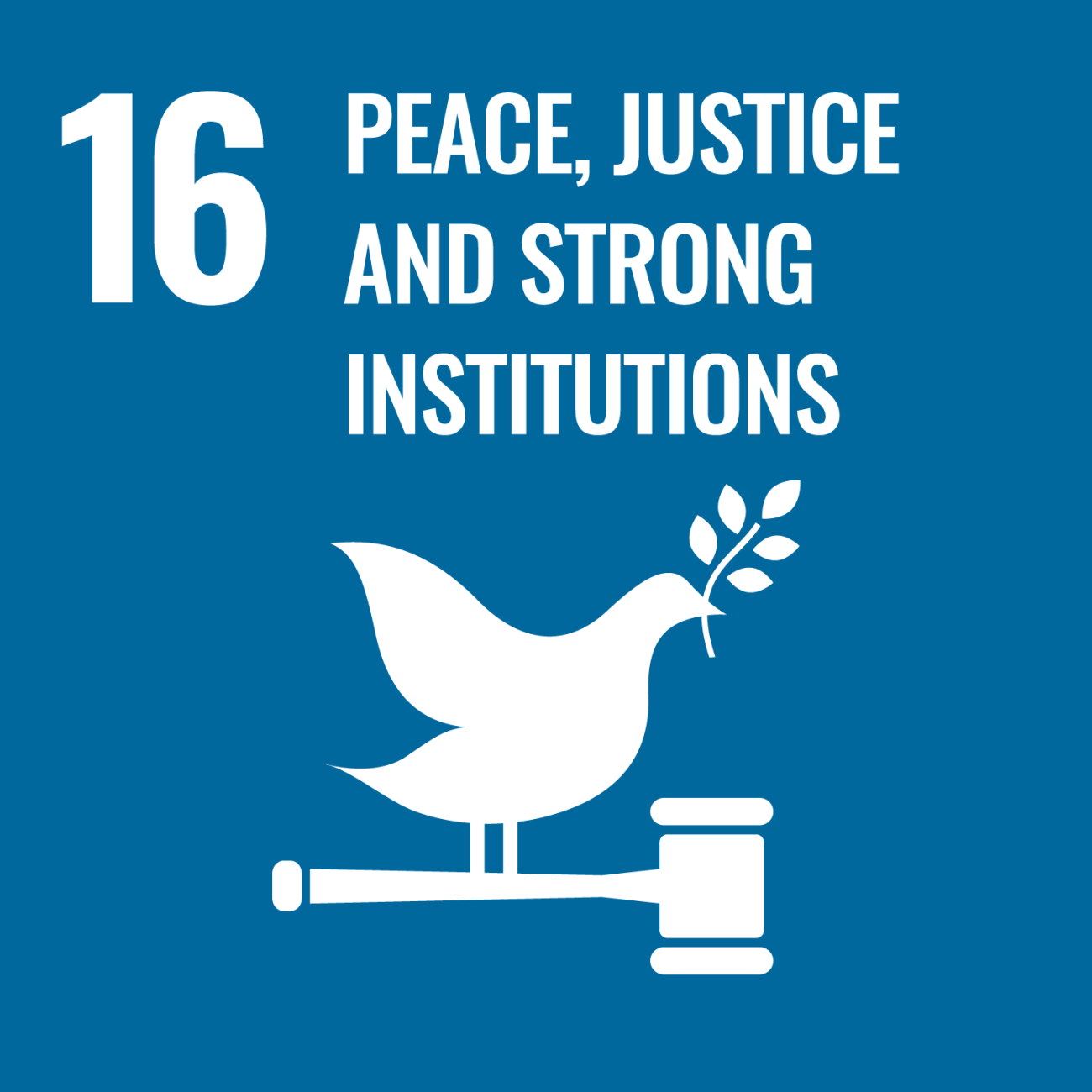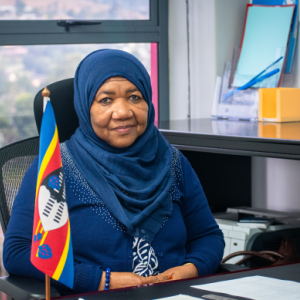We Cannot Prosper Without the Presence of Peace

Op-Ed by the Acting UN Resident Coordinator, for the month of December 2021.
In 2015, World Leaders adopted the 2030 Agenda for Sustainable Development and its 17 Sustainable Development Goals (SDGs). The 17 SDGs call for action by all countries to promote prosperity while maintaining peace, protecting the planet, the people and building partnerships. With less than eight years remaining to achieve these goals, countries are accelerating steps towards ending poverty, fighting inequalities, tackling climate change, and ensuring that no one is left behind. Every month, the United Nations places one of the 17 SDGs under the spotlight, highlighting its purpose, targets, and criticality in advancing Agenda 2030. This month’s focus is SDG 16: Peace, Justice and Strong Institutions.
BY AMINA MOHAMMED
As we endeavour to overcome a common enemy in COVID-19, global solidarity, dialogue, collaboration across continents, and unity amongst all persons, everywhere, have proved essential in our recovery from the pandemic.
However, the peace required to build back a better future for all is under severe threat. Armed conflict continues to rampage around the world, with an estimated 40 ongoing wars and conflicts today, devastating the lives of millions of people, including an approximate 426 million children. The absence of peace is detrimental to human rights, sustainable development, economic, social and society’s overall prosperity.
In the words of the UN Secretary-General, Mr António Guterres, on the International Day of Peace 2021: “As the human family, we face a stark choice: peace or perpetual peril. We must choose peace… Peace is not a naïve dream. It is a light in the darkness guiding us to the only pathway to a better future for humanity.”
It is therefore crucial that nations across the world renew their commitment, with ambition and dedication, to Sustainable Development Goal (SDG) 16; ‘Peace, Justice and Strong Institutions,’ seeking to ‘promote peaceful and inclusive societies for sustainable development, provide access to justice for all and build effective, accountable and inclusive institutions at all levels’.
Without peace, humanity pays an expensive price, for war and conflict increase poverty, corrode institutions and the opportunities which they bring, as well as deny civilians their dignity and human rights. Access to remote areas in need of urgent, life-saving humanitarian response and resources, is often minimised or blocked, causing greater suffering for the already vulnerable. Electricity and water supplies, telecommunications, schools and health facilities, as well as other significant infrastructure are often destroyed, and in turn, limit the ability of an effective response by first responders to the deteriorating situations.
Just and inclusive nations are simply not possible in times of conflict and war. Women and children are disproportionately vulnerable to the devastating impacts of war, with children facing unimaginable mental and physical trauma. In times of conflict, more children go hungry, fall victim to preventable diseases, lose access to schools, are trapped on the frontlines without access to humanitarian aid, and are at greater risk of sexual violence and recruitment by armed groups. According to research by Save the Children, children in Syrian conflicts showed signs of toxic stress – a devastating type of stress experienced by children when in prolonged or frequent adversity without appropriate support. The impacts of toxic stress are far-reaching amongst children, causing lifelong damage on cognitive development and emotional regulation. War and conflict therefore have an immense impact on generations to come and society-at-large.
Women and girls are immensely vulnerable to gender-based violence in times of conflict, including sexual violence, forced marriage and torture. Sexual violence is often used as a tactic of war: such which thrives whilst children are out of school and employment opportunities are minimal.
A single life destroyed or lost to war and conflict is one life too many. Urgent action is needed to restore peace to nations across the world.
Thus, in 2015, global leaders adopted the 2030 Agenda for Sustainable Development and in turn, the 17 Sustainable Development Goals (SDGs), committing to maintain peace, protect the planet and the people, and build strong partnerships. The intrinsic link between peace and sustainable development cannot be denied.
The UN Secretary-General therefore called for a “24-hour ceasefire,” highlighting that our individual and collective lives truly depend on the presence of peace. African nations, through the AU-UN Framework on Peace and Security, and African Union’s Agenda 2063, have actively worked to maintain peace across the continent. Since the signing of the AU Agenda in 2013 by African Heads of State and Government, the continent’s leaders have reduced conflict by a staggering and incredible 47 percent.
However, we cannot afford to lose momentum in our efforts to restore and maintain peace, such which continues to be under exceptional threat across the continent and world, including in our beautiful Kingdom of Eswatini. It is now, more than ever before as we seek to recover from the COVID-19 pandemic, that all persons, nations, regions and the globe must stand in solidarity to preserve peace - our greatest asset.
The United Nations is deeply committed to the preservation of peace, alongside the African Union, with over 70 peacekeeping missions taking place throughout the world since the establishment of the first peacekeeping mission in 1948.
In the Kingdom of Eswatini, as civil unrest and the COVID-19 pandemic continue to devastate the lives of EmaSwati, the United Nations is working to restore peace within the nation, and indeed, protect the most vulnerable EmaSwati.
Through the United Nations Sustainable Development Cooperation Framework (UNSDCF) 2021-2025, the UN is committed to enabling “a just, prosperous and resilient Eswatini where nobody is left behind.” The protection of peace is a core aspect of the Framework, which acts as a tool for accountability for all parties involved.
In the words of the late UN Secretary-General, Kofi Annan; “The future of peace and prosperity that we seek for all the world’s peoples needs a foundation of tolerance, security, equality and justice.” It is only in solidarity that we will see prosperity for all people, everywhere, including each EmaSwati and our wonderful children-to-come.
Written by


